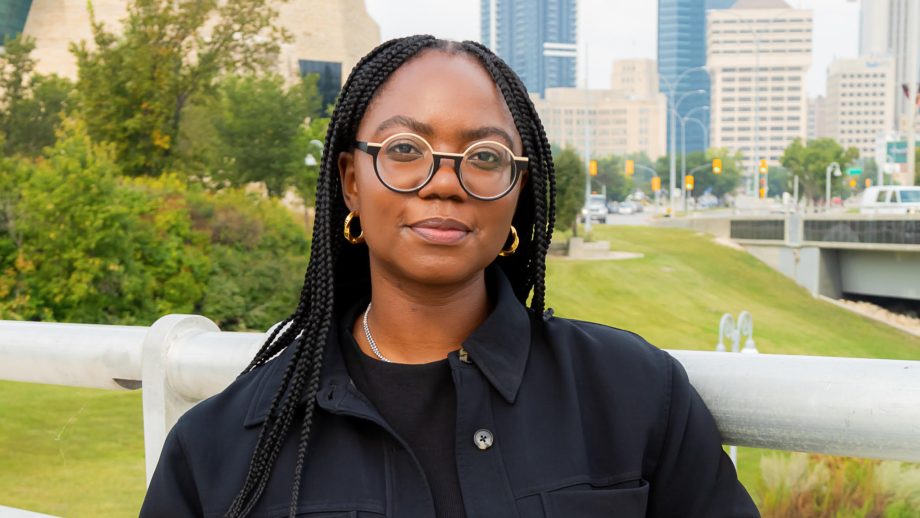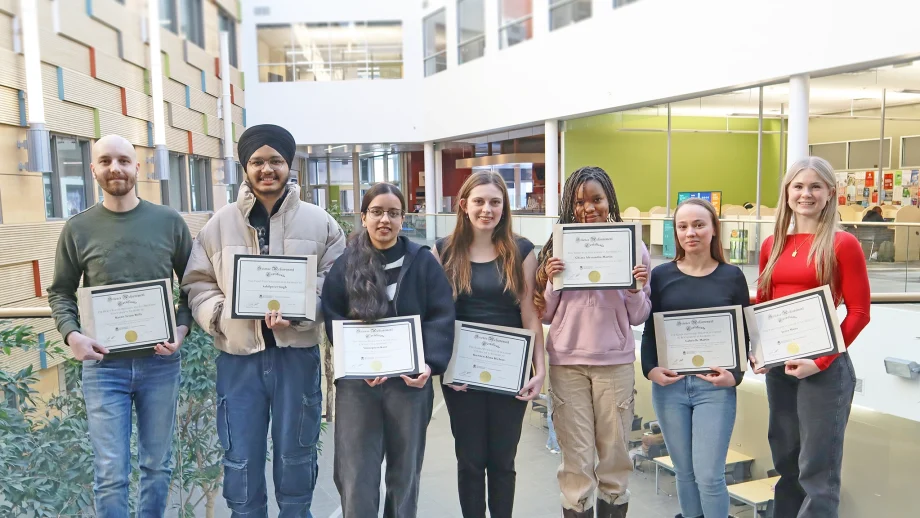Mister Chancellor, I have the honour to present Philip Weiss. Born in 1922 in Drohobycz, Poland, Philip, along with his parents, his brother, and his sister, was first placed in a ghetto, and then separated from his family; during the war, he was imprisoned in a succession of five concentration camps, and finally liberated by the Americans from Matthausen in 1945. His was one of the very few Jewish families in Poland, he discovered, all of whose members survived the war.
The Weiss family emigrated to Winnipeg, where Philip, who had aspired to be an architect, started an award-winning furniture design and manufacturing business where he works to this day, despite his other demanding vocations.
Since his arrival in Canada, the strongest and most striking of Philip Weiss’s callings has been to educate Canadians about the dark period of recent history that he and his family lived through, but that millions of European Jews, in Poland and elsewhere, did not survive. In countless ways, ranging from talks to high school and university classes and to various community groups, to sponsoring thousands of Manitoba children for free screenings of Steven Spielberg’s film, “Schindler’s List,” Philip Weiss has made it his life’s work to testify to history by bearing personal witness to the devastation of the Holocaust. In all of this work, he has promoted the values of tolerance and respect for all other groups — humane values that might prevent us, here or anywhere else, from descending into a similar darkness.
Among many other honours for these commitments, in 1991 Mr. Weiss was awarded the Prix Manitoba by the provincial government for distinguished service in cross-cultural awareness; in 1994, he was awarded the Bloomfield Medal from the Jewish National Fund for Outstanding Contributions to the Jewish people, and the Dr. Percy Barsky Humanitarian Award from the Canadian Shaare Zedek Hospital Foundation; and in 1998, the Canadian Jewish Congress Award, as one of the fifty Canadian Holocaust survivors who have greatly contributed to the betterment of Canadian society. In 1990, as Chair of the Holocaust Memorial Committee and the Holocaust Remembrance Committee, Mr. Weiss organized the construction of a Holocaust Memorial on the grounds of the Manitoba Legislature. Dedicated on September 6th of that year, it was the first such memorial on public grounds anywhere in Canada.
With courage and compassion, Philip Weiss has devoted himself for many decades to his particular mission: his vision has been to bring the powers of individual memory into the public arena, so that his recollections become, in our collective imagination, the voices of millions of others for whom Philip Weiss continues to speak — voices and memories that will not be silenced or suppressed.
Mr. Chancellor, I am honoured to request that you admit Philip Weiss to the degree of Doctor of Laws, honoris causa.
Presented by
Neil K. Besner, Dean of Humanities
June 1, 2003




